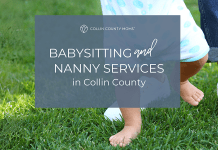Anxiety disorders are, unfortunately, all too common for many people I know, including myself. The symptoms can range from a mild annoyance to a completely debilitating reaction. For me, the shallow breaths, squeezing heart, dizziness, and feeling of wanting to curl into a tight ball and disappear seem to plague me when I least expect them. Sometimes my worries are rational, but for the most part, they’re all in my head. I’ve dealt with these symptoms since I was a teenager and I’ve learned a plethora of coping strategies. What I didn’t prepare myself for was the possibility that one of my children could one day inherit my anxiety disorder, let alone two of my children.
Even as I type this, I have a sharp taste in the back of my throat. When I’m having a panic attack, deep down, I know everything is fine. I just can’t make myself believe it. It’s like a battle being waged in my brain that I have no control over. My fears pull me under water and strong currents of self-doubt and insecurity sweep away my reasoning. My dear husband is all too familiar with my anxiety attacks. He knows exactly what to do when he sees one approaching. He drops everything, sits me down, and says…nothing.

When we first got married and I was having a bout of anxiety that led into a panic attack, he would react by asking, “What’s wrong? Why are you upset?” followed by, “Everything is fine; You can stop crying.” Like I said, I knew everything was fine. I just needed to the get the fear out of my head…by crying, screaming, whatever it took. There was no chance I’d be able to voice what was making me upset, mostly because I’d have no reason for why I was feeling anxious.
Now that we’ve been married for eight years and have had many conversations over what I need in those moments of despair, he holds me and lets me cry and scream. I recover from these attacks far more smoothly when he does this. Just knowing that he’s there and that I can grab on to him like a life raft is reassuring. I truly don’t need him to do anything else.
Why, then, did I forget to do these things for my own babies when they began suffering from anxiety? I’d tell them that everything would be okay. I’d try to convince them to stop crying and screaming. Their thrashing around and uncooperative behavior frustrated me. Why couldn’t they just tell me what was wrong? Not only was I upset for them, I needed their anxiety attacks to end as quickly as they started because I felt like I was looking in a mirror. I didn’t want to see what I looked like when I was experiencing anxiety and I couldn’t stomach the though of my sweet children enduring what I so often have endured.
I’m overcome with so much sadness and guilt when I think back to how I used to handle their panic attacks. I know I could have done a better job. I could have held them, rocked them, and said nothing until they were ready to talk. If I have trouble communicating when I’m drowning in my anxiety, how did I expect a three- and five-year-old to tell me what was wrong when they were starting to sink?

When all of this finally hit me like a crushing wave, I began to handle their following anxiety attacks with much more grace. Instead of trying to quiet them in a desperate plea to prevent them from submerging further into their fears, I take a deep breath and do my best to hold them above the water. I don’t care if their anxiety prevents them from talking and rationalizing for five minutes or 15 minutes. I hold them and sit with them until they’re feeling centered again. To purge their worry and sadness, I urge them to cry and scream. I act as their life raft. I give them the only thing that matters in that moment: my understanding and patience, even if it means catching a glimpse of myself in the process.













